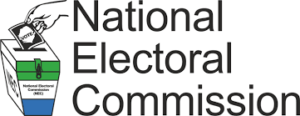
VIOLATION OR THE RIGHT TO VOTE IN NIGERIA

The right to vote in Nigeria is an important issue that needs to be tackled and shed light upon, for the sake of human rights as well as the development of the country. This Article aims at discussing the right to vote in Nigeria, its problems and the factors surrounding it.
Voting is a process whereby those eligible to vote choose a candidate who will represent them in the affairs of a state.

The Universal Declaration of Human Rights in Article 21 states:
Everyone has the right to take part in the government of his/her country, directly or through freely chosen representatives.
The right to vote is an essential and fundamental right rooted in democracy. It is said that voting is a critical way to influence decision-making in government. Every democratic state owes its citizens those rights.
Elections should be free and fair, in that citizens have the right and freedom to vote for their preferred candidate and fair in that they should not be subject to the unfairness of any sort.
But when those rights are not upheld duly and diligently, the legitimacy of the said democratic state is questioned.
Although the right to vote is considered a fundamental right, it is not upheld in many places around the world.
The first election held in Nigeria was in 1960, after her independence. Ever since then, elections have been conducted for various governmental posts. Based on the last general elections in 2019, it is clear that these elections are buried by electoral fraud, corruption and much more heinous acts.
The voting processes constantly tamper with, either by fake ballot papers, buying votes, intimidation or making use of citizens’ unfortunate circumstances in light of political consciousness. Records show that in the last 3-4 elections held, about 1150 people have lost their lives.
During the election process, voters are constantly attacked, and the process itself is disrupted by violence and destruction.

Nigerian authorities claim to have adequate safety measures, yet when situations like this occur, there is nothing that is done to stop this and protect the voters.
Nigerian elections have quite a disturbing history of violence, abuse and violation of Constitutional rights. since she got her independence the issue has continuously been how to bargain with issues relating to election administration, such as ineffectual asset administration and destitute preparations.
There are now also issues of destroyed, snatched or replaced ballot papers and other means by which politicians who are hell-bent on being successful in the elections use.
Dishonest politicians and willingly ever ready to buy the votes of the citizens, and unfortunately, these citizens are also ready to give out their votes and rights to the highest bidder.
“A person who – (a) corruptly by himself or by any other person at any time after the date of an election has been announced, directly or indirectly gives or provides or pays money to or for any person to corruptly influence that person or any other person to vote or refrain from voting at such election, or on account of such person or any other person having voted or refrained from voting at such election; or
(b) being a voter, corruptly accepts or takes money or any other inducement during any of the period stated in paragraph (a) of this section, commits an offence and is liable on conviction to a fine of N100,000 or 12 months imprisonment or both.”- the Electoral Act of 2010 states, but despite these sanctions put in place, they are inefficient practically.
It is clear to see that money has outweighed Constitutional rights provided for citizens and sadly these citizens have no idea or are ignorant of the consequences of these actions to the country and governance of Nigeria.

Illiteracy could be a dominant factor leading to this problem. Many Nigerian citizens are illiterate and ignorant of their Constitutional rights and see nothing wrong with their actions. They are also unknowledgeable of the effects that selling their votes, or participating in violent electoral malpractices and rigging may have on the country politically, economically and socially.
Poverty is also a factor to consider. Many people will do anything to be able to acquire ‘wealth’ of any sort. Especially when they are in Dire need of it. In Nigeria, many of those paid to be involved in malpractices were due to poverty.
And others being bought in other to have their daily bread.
Corruption in the governmental system also aids this. It is popularly known for Nigeria to be one of the most corrupt countries worldwide. There is no doubt about that. These electoral bodies charged with the responsibility of overseeing these processes may also be constituted by corruption. In the recently conducted elections, the Independent National Electoral Commission may be faced with the law on the grounds of possible Electoral malpractices.

In conclusion, the Right to vote in Nigeria is a matter of great importance to aid various processes and develop the government and country as a whole.
There is a need for solutions to be provided to curb such disasters being caused by this right violation, and the first step is knowing the problems concerning this.







